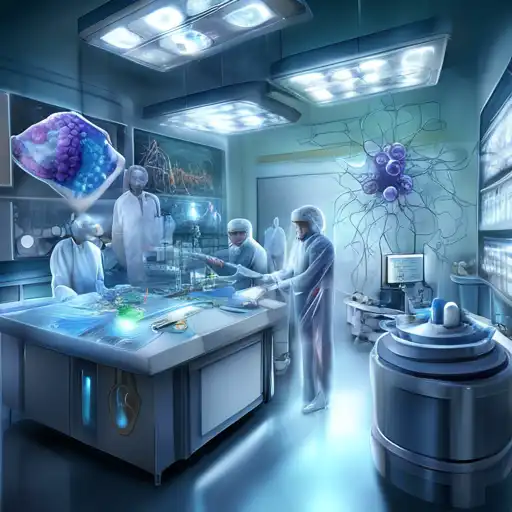Introduction to Nanotechnology in Medicine
Nanotechnology, the science of manipulating matter at the atomic and molecular scale, is set to revolutionize the field of medicine. With its potential to diagnose, treat, and prevent diseases at a cellular level, nanotechnology in medicine is indeed the next big thing. This article explores the groundbreaking advancements and the future prospects of nanotechnology in healthcare.
The Promise of Nanomedicine
Nanomedicine, the application of nanotechnology in healthcare, offers unprecedented opportunities for the early detection and treatment of diseases. By engineering materials and devices at the nanoscale, scientists can target diseased cells directly, minimizing side effects and improving patient outcomes.
Current Applications of Nanotechnology in Medicine
Today, nanotechnology is already making waves in various medical fields. Here are some of the most notable applications:
- Drug Delivery: Nanoparticles can deliver drugs directly to diseased cells, reducing the impact on healthy cells and increasing the efficacy of treatments.
- Diagnostic Tools: Nanosensors and nanodevices are being developed for the early detection of diseases, including cancer and heart disease.
- Regenerative Medicine: Nanotechnology is being used to create scaffolds that support the growth of new tissues and organs.
- Antimicrobial Treatments: Nanoparticles are being explored as a means to combat antibiotic-resistant bacteria.
Challenges and Ethical Considerations
Despite its potential, the integration of nanotechnology into medicine faces several challenges. These include technical hurdles, regulatory issues, and ethical concerns regarding privacy and the long-term effects of nanomaterials on the human body and the environment.
The Future of Nanotechnology in Medicine
The future of nanotechnology in medicine is bright, with ongoing research paving the way for more innovative treatments and diagnostic tools. As scientists continue to unlock the potential of nanomedicine, we can expect to see significant advancements in personalized medicine, targeted drug delivery, and non-invasive diagnostic techniques.
Conclusion
Nanotechnology in medicine represents a frontier of medical science that promises to transform healthcare as we know it. With its ability to target diseases at the molecular level, nanomedicine offers hope for more effective treatments and cures for some of the most challenging diseases. As we move forward, it is crucial to address the challenges and ethical considerations to fully realize the potential of this exciting field.
For more insights into the future of healthcare technology, explore our articles on healthtech trends and personalized medicine.
